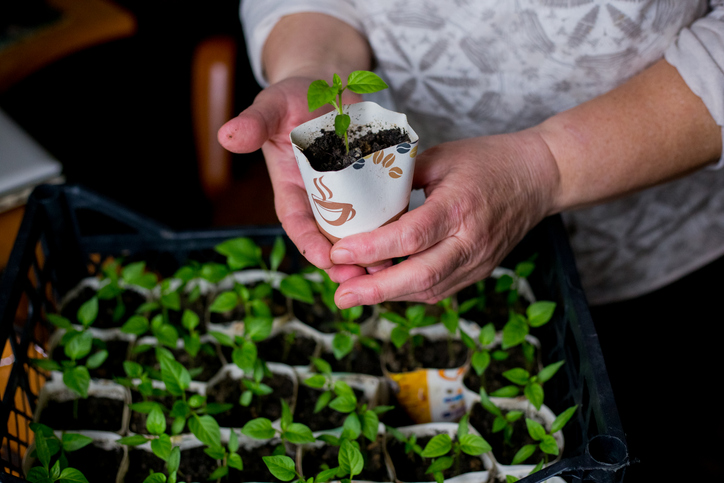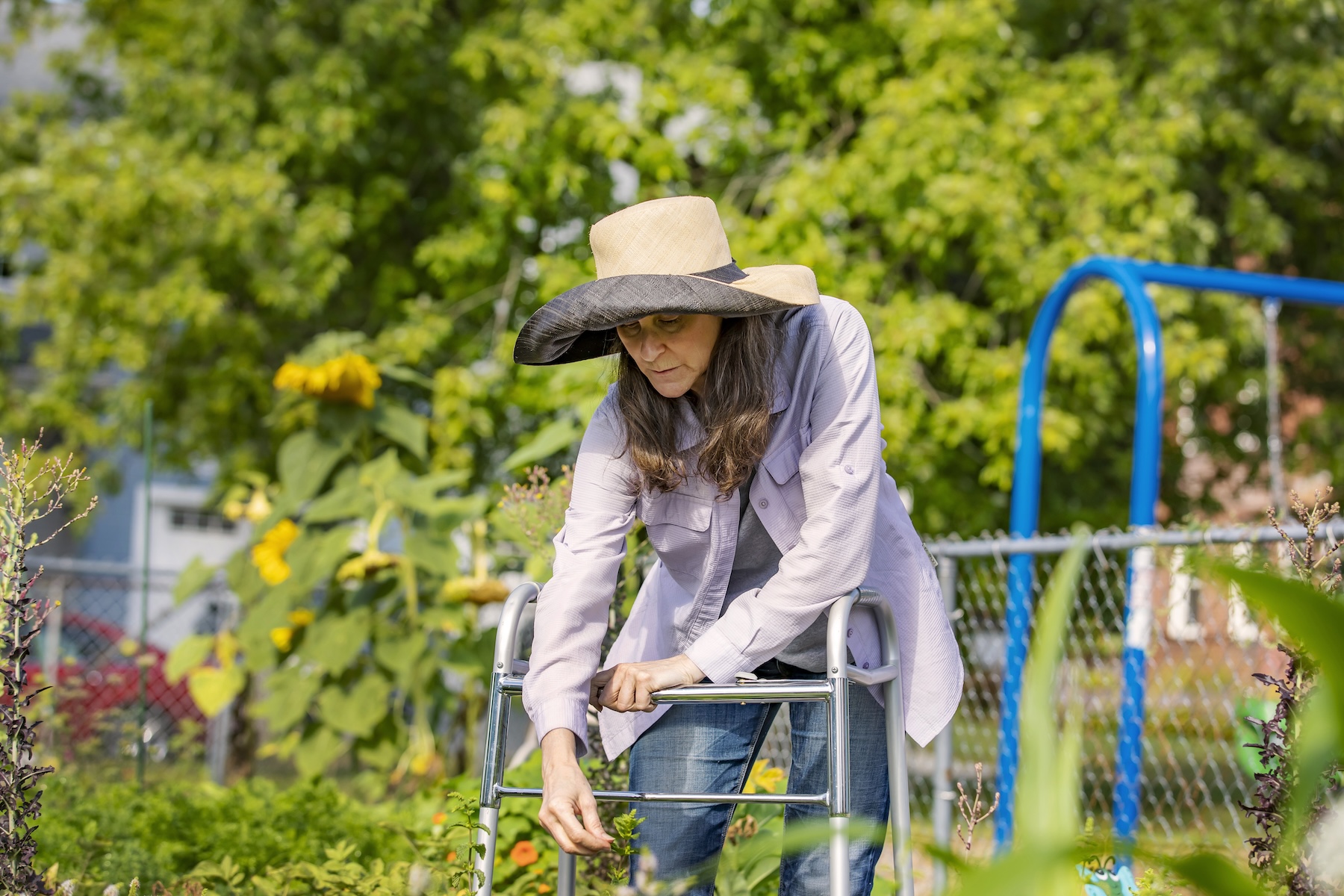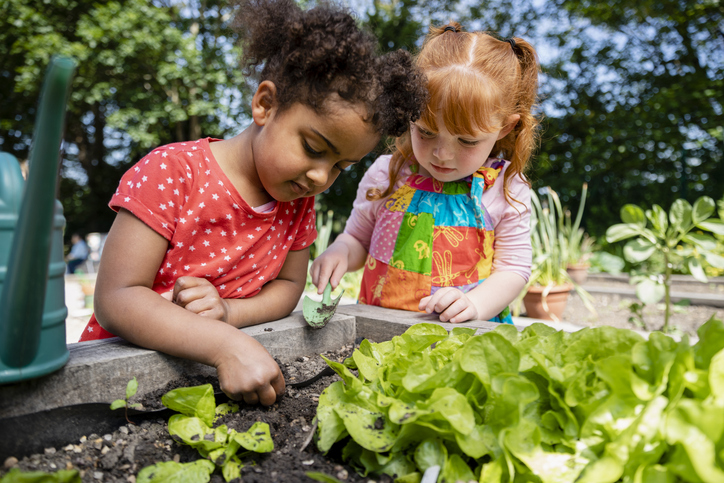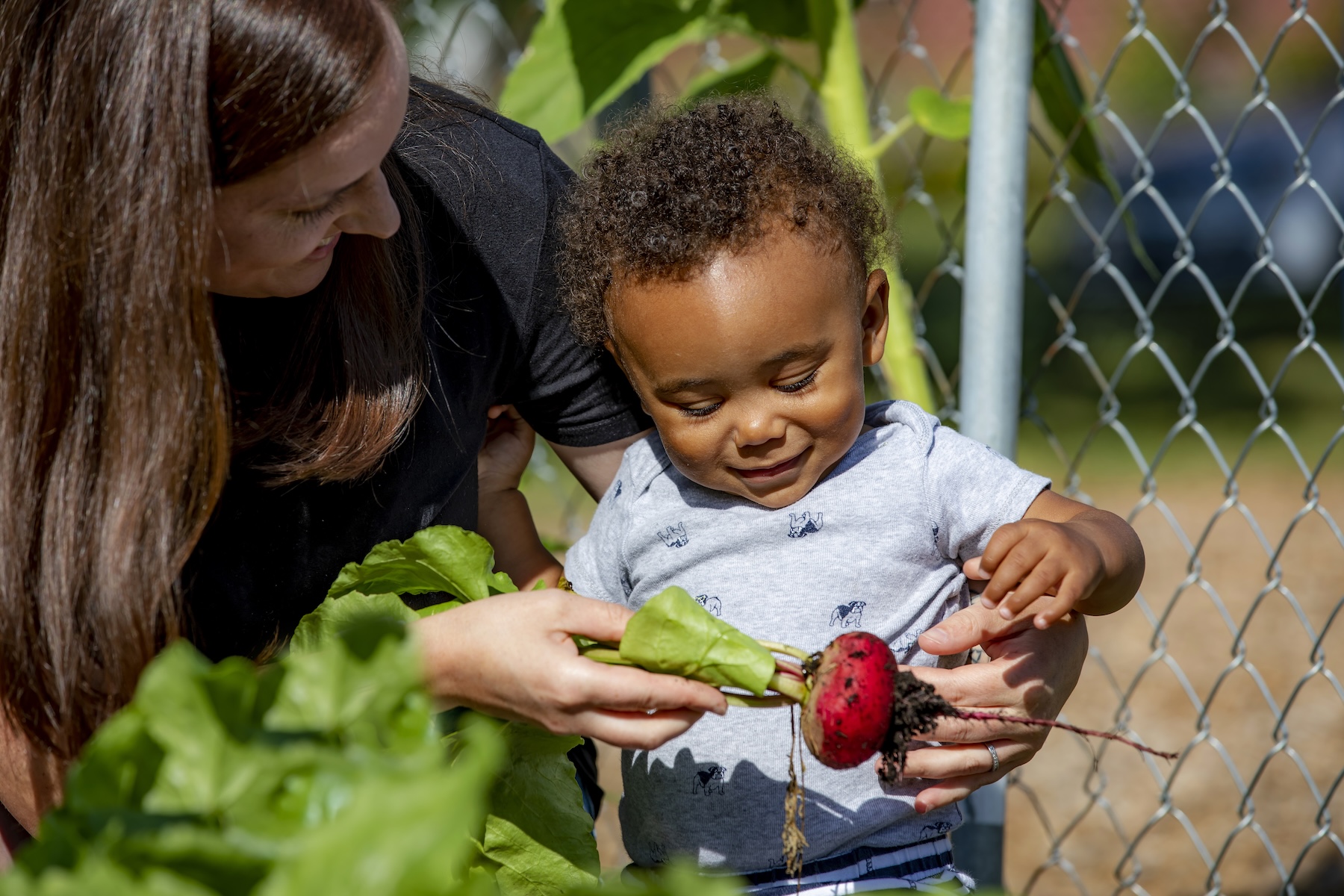April is National Garden Month! Whether you have a green thumb or can barely keep a plant thriving, anyone can appreciate gardens. Gardens are a great place to connect directly with nature, which can benefit both your mental and physical health. You can also connect with your communities—working side by side with friends and neighbors of all generations may help you feel closer to those around you. To celebrate National Garden Month, here are a few highlights of garden efforts all around Massachusetts.
Home Gardens
Whether you live in an apartment, duplex, single-family home, or somewhere in between, there are plenty of ways to include gardens in your life. If creating a bed in the ground or a large outdoor structure seems intimidating, try something smaller. Container gardening can be a lower stress way to grow your own fruits, veggies, and herbs. You can use containers from food you may already have—empty yogurt tubs, milk jugs, peanut butter jars, and sauce cans can work well. Thoroughly clean out your chosen container, and add the following garden ingredients:
- Start with potting soil. Fill your container most of the way up with soil.
- Add either seeds or seedlings to get your plant started. For something like a peanut butter jar, you will probably only be able to start one plant. For milk jugs or other large containers, you may be able to fit more than one seedling.
- Water your new plant daily. Make sure the container can drain. Poke a hole or two at the bottom to be sure any excess water can run out. Overwatering a plant can be just as harmful as underwatering.
- Place your container somewhere that gets a lot of sun. This could be outside if the weather is nice or near a bright window.
If you are starting with seeds, growth will take time. Be patient, keep providing sun, water, and drainage, and soon your plants will sprout. Before you know it, your tomato seedling will be overflowing with ripe, juicy red tomatoes that you can share with your friends and family. If you need a little more support, this SNAP-Ed gardening blog can point you in the right direction.

Community Gardens
If you do not have access to outdoor space at home or are overwhelmed by the idea of container gardening from scratch, there are other options. Many towns throughout Massachusetts have community gardens. A quick internet search can likely tell you where yours are, and the local library can help if the internet cannot. Typically, community gardens are made of pre-built garden beds for community members to use at no cost. Often, you will have to reserve a bed or a section, so be sure to check in before you jump into gardening. Access to a community garden not only gives you a chance to grow your own food, but you may also meet new neighbors and learn more about your community as a whole.

School Gardens
For busy parents, there may not be any time to consider gardening among the million other responsibilities. That is where school gardens can step in. Many schools have their own outdoor gardens or indoor growing sites. If you are lucky enough to have access to a school garden in your community, encourage your child to be a part of that. Learning how food is grown from start to finish can help kids appreciate foods—especially fruits and vegetables—more than they ever have. Not every school or district has access to gardens, so check in with your kids’ teachers and administrative staff to find out what is available near you.

Resources to Help Get Started
One of the biggest barriers to growing a garden is simply getting started. You can use your SNAP benefits and the Healthy Incentives Program (HIP) to purchase seeds or seedlings. Though there is that upfront cost, you could save money in the long run by growing food consistently over a few months. Additionally, some municipal groups can help build beds. This includes the Holyoke Collective in Western Mass, The Food Project in Boston, and Backyard Growers on the North Shore. If you are in one of these areas, see if you qualify for a free garden bed.
Did you find this blog post helpful? Please click the heart button!




